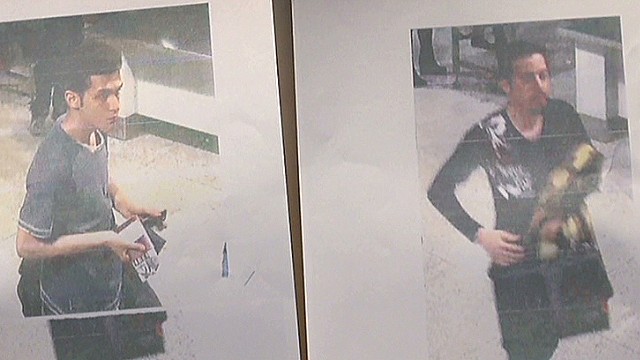March 12, 2014 -- Updated 0110 GMT (0910 HKT)

Men with stolen passports identified
(CNN) -- One of the few mysteries to have light shed on it in the search for a missing Malaysia Airlines airliner has been the case of two passengers who boarded the flight with stolen passports.
The news that two Flight
370 passengers were not who they claimed to be -- and had used stolen
documents -- immediately raised speculation about foul play. Authorities
have not ruled out terrorism, but at least where it concerns these two
passengers, early evidence indicates they were, foremost, Iranian
migrants.
Interpol Secretary
General Ronald Noble identified the two as Pouri Nourmohammadi, 18, and
Delavar Syed Mohammad Reza, 29. He said they entered Malaysia using
valid Iranian passports, but they used stolen Austrian and Italian
passports to board Flight 370.
It is not uncommon for
Iranians to go to Southeast Asia, particularly Malaysia, Phil Robertson,
deputy director of the Asia Division of Human Rights Watch, told CNN.
After the violent
2009-2010 election protests in Iran, many Iranians fled for Malaysia,
where Middle Easterners, in most cases, can travel without a visa,
Robertson said.
"A significant number of asylum-seekers from Iran did end up in Malaysia," he said.
Acquiring stolen or
altered passports, "unfortunately, is much easier than most people would
think," and quite common, Robertson said. A European passport would be a
great advantage for a migrant wanting to leave Southeast Asia.
Authorities say the
passports -- one Austrian, the other Italian -- were stolen in Thailand,
which is a known hub of the stolen passport industry.
"Thailand remains a
robust venue for the sale of high-quality false passports (including
altered stolen passports) and other supporting documentation," said Paul
Quaglia, who has been working in the region as a security and risk
analyst for 14 years.
According to Thai
police, an Iranian man by the name of Kazem Ali bought one-way tickets
for the two men, describing them as friends who wanted to return home to
Europe. While Ali made the initial booking by telephone, either Ali or
someone acting on his behalf paid for the tickets in cash, according to
police.
Interpol's Noble said
the evidence in the case of the stolen passports points to a concern
quite different from terrorism: "If you read what the head of Malaysia
police said recently, about [Nourmohammadi] ... wanting to travel to
Frankfurt, Germany, to be with his mother," he said, "[this] is part of a
human smuggling issue and not a terrorist issue," Noble said.
Human smuggling, which
usually is linked to abuses such as forced labor or sex slavery, is a
problem in Malaysia and other Southeast Asian countries.
The suggestion is not
that Reza and Nourmohammadi were being exploited, but that there exists
in Malaysia a criminal infrastructure for smuggling people.

Comments